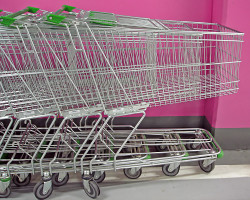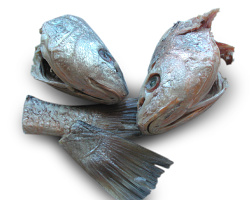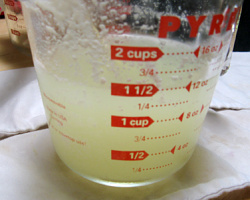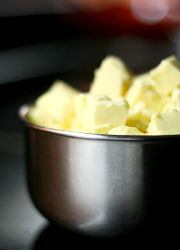How can I reduce my dependence on big supermarkets?
 We’ve had an email from Alice with so many ‘Reduce This’ questions that I’m going to have to run them two a week to get through them ;)
We’ve had an email from Alice with so many ‘Reduce This’ questions that I’m going to have to run them two a week to get through them ;)
First up:
I want to reduce my use of Tesco, which I use because I don’t have transport and it’s the only one-stop place I can walk to with my rucksack for my weekly shop, but I’d be interested to hear any ideas people have for reducing personal dependence on the “Big Four” evil supermarkets.
In an ideal world, we’d all manage our own allotments and shop at local, independent shops, who source good quality items from local farms & producers. In the real world, this isn’t always possible – there are a limited number of allotments available and people have time constraints that don’t exist in the fantasy world – it’s hard to shop at small shops that are only open 9-5 when you have a 9-5 job.
Because of the big supermarkets, there are also obviously a lot less small shops around – right now, we live close to a local high street which is almost completely filled with chain stores and the house we’re (hopefully) moving to is very close to a big supermarket so there are no local shops at all.
So what have you done to reduce your use of the big supermarkets? How have you fitted it around your busy life? What would you recommend? What would you not recommend? And what about non-food items?



 We’ve had a “
We’ve had a “ It was my birthday (the big 3-0) last Monday and because I’m wild and exciting, I decided I’d like to spend the day making cheese. I’m determined to get quickly confident with soft cheese so I can move onto hard cheese as soon as I’ve got a room they can be stored in for 12 months (*insert misc house-moving grumbles here*).
It was my birthday (the big 3-0) last Monday and because I’m wild and exciting, I decided I’d like to spend the day making cheese. I’m determined to get quickly confident with soft cheese so I can move onto hard cheese as soon as I’ve got a room they can be stored in for 12 months (*insert misc house-moving grumbles here*). We’ve had a message from Anita on
We’ve had a message from Anita on  We’ve covered
We’ve covered 














